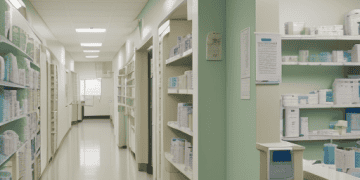Nearly two weeks since Kobayashi Pharmaceutical announced health concerns over its beni kōji red yeast rice supplements, the extensive and intricate supply chain is complicating efforts to locate and recall the affected products. An ongoing investigation seeks to identify the cause of reported kidney problems linked to the consumption of these supplements. As of the latest update, the consumption of beni kōji supplements has been associated with at least five fatalities, 188 hospitalizations, and 1,058 medical consultations. Kobayashi Pharmaceutical has also fielded approximately 40,000 inquiries from concerned consumers. In Taiwan alone, 11 individuals have reported adverse effects after using the company’s products.
In response to the crisis, Kobayashi Pharmaceutical submitted a comprehensive report to the health ministry, listing 52 companies directly supplied with beni kōji and an additional 173 companies that received the product indirectly. These companies were tasked with reporting to the health ministry whether their products contained significant amounts of beni kōji or had been linked to any health issues within the past three years. None of the initial 52 companies have reported products meeting these criteria so far. However, a report by Teikoku Databank highlights the breadth of Kobayashi Pharmaceutical’s distribution network, indicating that as of March, 4,822 distributors had purchased beni kōji, including 1,778 food and beverage companies. The study estimates that approximately 33,000 companies have sold or distributed products containing beni kōji from Kobayashi Pharmaceutical.
Several retailers, including Aeon and Family Mart, have initiated voluntary recalls of products containing beni kōji, despite no direct link to the contaminated batch. The Osaka Municipal Government reported identifying about 860,000 potentially affected products across approximately 23,000 stores, with local health centers actively verifying these findings. Beni kōji is generally recognized for its health benefits, such as cholesterol reduction. The adverse health events, including deaths and kidney disease, are suspected to result from contamination by a harmful substance, possibly puberulic acid from blue mold, during production at the company’s now-shuttered Osaka facility.
The Japanese Society of Nephrology’s interim report on the kidney damage associated with the supplements noted that most cases involved individuals aged 40 to 69, with a slightly higher incidence among women. The Osaka Municipal Government, following directives from the health ministry, has mandated a recall of Kobayashi Pharmaceutical’s Beni Koji Cholesterol Help, Naishi Herupu + Koresuteroru (Supplements to help reduce visceral fat), and Natto Kinaze Sarasara-tsubu Gorudo (Nattokinase tablets for blood clots), in an effort to mitigate further health risks.
Find the latest supply chain report news at The Supply Chain Report. For international trade tools, see ADAMftd.com.
#KobayashiHealthNews #HealthAlertNews #PublicHealth #MedicalInvestigationNews #FoodSafety















